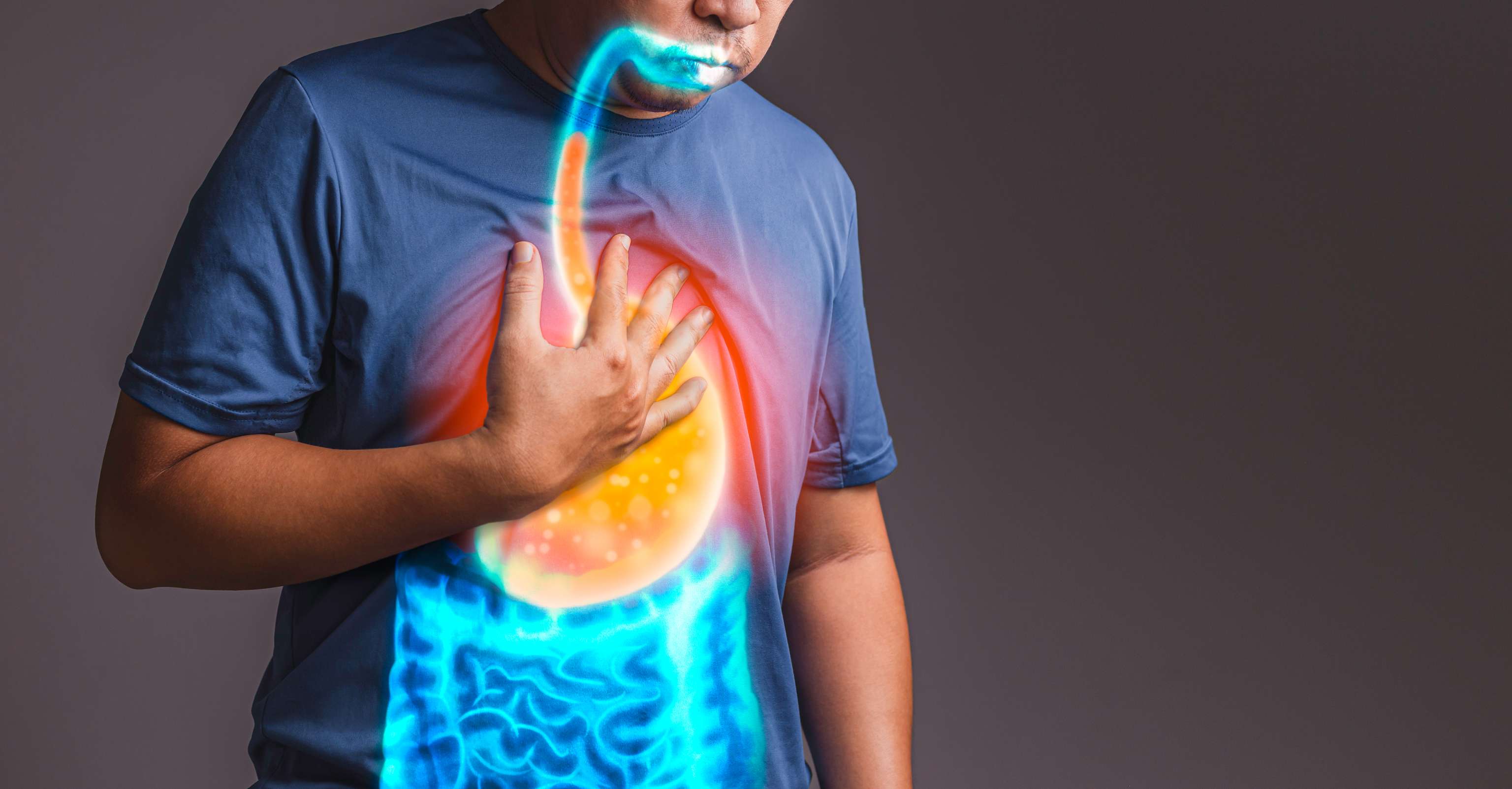Occasionally heartburn - often reflux disease

Heartburn:
Generally, heartburn is manifested by the backflow (i.e. reflux) of stomach acid into our esophagus or up to the roof of our mouth. This can be caused by a dysfunction or weakening of the sphincter muscle (also called the lower esophageal sphincter) at the cardia (i.e. entrance to the stomach). Alcohol, coffee consumption, smoking, large meals, or conditions such as gastritis caused by the bacteria H. plyori can promote heartburn.
Consequently, belching acid, pain behind the breastbone, or a feeling of pressure in the upper part of the abdomen can be common complaints of the uncomfortable feeling. Hoarseness in the morning, throat clearing or coughing may also manifest, as the gastric juices can irritate the vocal cords and pharyngeal mucosa by rising up into the throat. When it reaches the mouth, it can cause an unpleasant taste and in the long run it can also damage the enamel of the teeth.
Reflux Disease:
According to the 2016 article in the journal, The Gastroenterologist, one in five adults in the Western world, or 20% of the population, suffers from symptomatic gastroesophageal reflux disease, or GERD.
In GERD, there is an abnormal increase in the amount of acidic gastric juice that rises into the esophagus. The mucous membrane of the esophagus, in contrast to the stomach, cannot offer enough resistance and is damaged by the rising acid. In the long run, this can lead to inflammation with changes in the mucosa, also called reflux esophagitis.
Types of the disease:
There are two types of reflux disease. If there is no mucosal change, it is called non-erosive gastroesophageal reflux disease, or NERD for short. About 60% of GERD patients suffer from this type of disease. If there are changes in the mucosa, this type is also called erosive reflux disease, or ERD for short.
In addition to this, there is also a distinction between two forms of GERD: primary and secondary GERD.
Reflux in pregnancy:
While the cause of primary GERD cannot be clearly found, secondary GERD develops as a result of known changes in the body. During pregnancy, for example, reflux disease may develop in the last trimester due to an increase in abdominal pressure. In about one in two women at that stage, this may be the case. However, in most pregnant women, the disease regresses on its own after delivery.
Forms of therapy:
A measurement of pH is used as the most commonly used diagnostic emethosis. This involves measuring the levels in the esophagus over a 24-hour period.
If GERD is diagnosed, proton pump inhibitors, also called PPIs, are used first in therapy in most cases. Medications that fall into this chemical group would include omeprazole or pantoprazole.
If the disease cannot be treated by medication and is in an advanced stage, surgical intervention (i.e. anti-reflux surgery) may also be necessary. In this procedure, a type of sleeve is created from the upper stomach and sewn around the lower end of the esophagus. This stabilizes the esophageal sphincter.
Sleep disturbances due to nocturnal reflux:
According to the Americam Gastroenterological Association (AGA) scientific opinion survey, 79% of patients who suffer from heartburn also have symptoms at night. The more severe the inflammation-related changes, the more severe the nocturnal GERD. However, only 13% of patients have reflux symptoms exclusively at night. According to the AGA survey, 75% of respondents with nocturnal GERD suffer from sleep disturbances.
Conclusion:
While even classic home remedies could be helpful for mild heartburn, reflux disease, which is characterized by frequency, requires certain medications or in some cases even surgical intervention such as anti-reflux surgery. Since this disease can develop serious consequences, a specialist should be consulted for advice in the case of frequent symptoms, in order to improve the effect with the help of early treatment.
Active ingredients:
Sources
- Labenz, J., Labenz, C. Prävalenz und natürlicher Verlauf der gastroösophagealen Refluxkrankheit. Gastroenterologe 11, 102–109 (2016).
- Joachim Labenz Herbert Koop, Gastroösophageale Refluxkrankheit – was tun, wenn PPI nicht ausreichend wirksam, verträglich oder erwünscht sind, Deutsche Medizinische Wochenschrift, Seite 356–366, Georg Thieme Verlag KG, 2017
- Refluxkrankheit (Netdoktor)
- Schlafstörungen durch nächtlichen Reflux (Ärzteblatt)
- Sodbrennen (Netdoktor)
- Sodbrennen in der Schwangerschaft (Netdoktor)

Danilo Glisic
Last updated on 29.12.2020
Your personal medication assistant
Browse our extensive database of medications from A-Z, including effects, side effects, and dosage.
All active ingredients with their effects, applications, and side effects, as well as the medications they are contained in.
Symptoms, causes, and treatments for common diseases and injuries.
The presented content does not replace the original package insert of the medication, especially regarding the dosage and effects of individual products. We cannot assume liability for the accuracy of the data, as the data has been partially converted automatically. Always consult a doctor for diagnoses and other health-related questions.
© medikamio